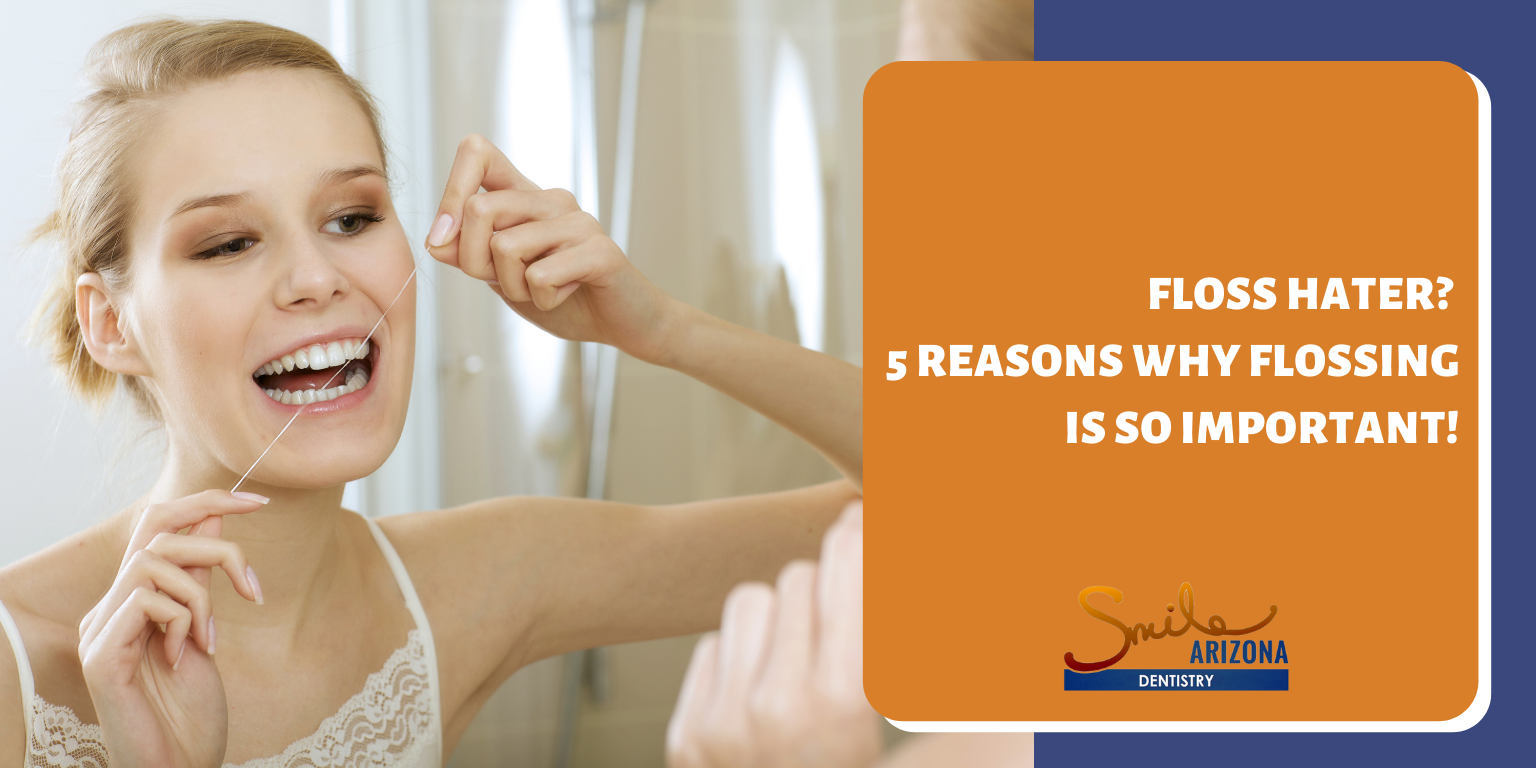


Dentists, hygienists and most dental professionals truly work tirelessly to help continue to educate our patients. If one had to pick one product, whether to brush or floss, choose flossing! Flossing covers more surface area cleaning-wise on each tooth (properly flossing of course) over solely brushing. Flossing is not an optional habit and should always be a priority.
One survey conducted by the Dentists' Association reveals that 4 in 10 people floss their teeth once a day, and 20% of people never floss at all! Most people ignore the importance of flossing or are unsure how to do it correctly. Based on our survey in our office, about 50% never floss and about 25% seldom floss. That leaves us maybe a full 25% of our patient population that flosses an estimated 5 times a week.
Flossing provides several benefits:
Most people ignore flossing because they have not been properly informed WHY they should floss. Once they see bleeding, a common response is to stop flossing or say, “My gums always bleed!” as an excuse to stop flossing. Bleeding means one needs to floss more and that one needs the help of a dental professional! Bleeding is due to the accumulation of bacteria and after an extended and untreated period of time, tartar or calculus buildup (hardened deposits) with gum inflammation will be present, indicating more need for a professional dental exam and care. Once there is hardened buildup, one is no longer able to brush or floss to remove it. It must now be scraped off the affected teeth by a dental professional.
If you have never flossed before, your gums may bleed in a few areas or more. The bleeding could stop for the most part within a week or two, but one still needs a dental professional evaluation and hygiene visit. Ignoring flossing allows harmful bacteria and plaque to accumulate in the mouth, causing cavities and periodontal disease. Brushing helps clean your teeth and mouth, but it can be tough to clean between your teeth without floss. That is why dentists recommend patients to incorporate flossing into their daily oral health habits.
Plaque on your teeth does not just stain your teeth but also can lead to gum disease. As the disease progresses, it damages your soft gum tissue and the underlying ligaments and bone, causing periodontitis, the advanced form of gum disease. If left untreated, periodontitis can result in tooth loss. However, flossing cleans the plaque between your teeth and helps to avoid:
Your gums might bleed if you do not floss and this is a sign of gingivitis. However, gingivitis in its earlier stages can be reversed with good oral hygiene. Otherwise, it allows plaque and bacteria to enter your bloodstream, causing plaque buildup in vessels and possibly heart disease. According to research, a person with gum disease has a 20% chance of developing heart disease. Thus, flossing is essential to reduce this risk!
The buildup of plaque and bacteria causes bad breath. However, flossing freshens your breath, eliminating the bad smell. Periodontal disease has a particular smell or malodor. It is troublesome for those affected, people with it have a difficult time smelling it on themselves.
Sticky candies or dry fruits trapped between your teeth can result in cavity-causing plaque after a few days, further resulting in tooth decay. However, flossing removes the plaque from between teeth.
Flossing removes leftover food particles and plaque accumulated between your teeth and makes them look brighter.
Knowing and understanding the importance of flossing will keep you motivated, even when you find the process tedious. To become a skilled and quick flosser, it will take practice just like every other skill one does well in life that has been practiced until mastered. Do not get discouraged! It is your health we are talking about; it is a necessary skill for a lifetime!
We genuinely care about your health. Our practice, Smile Arizona Dentistry is located in south Scottsdale, AZ, and is available to play a key role to help you maintain optimum oral care and health. Contact us today to schedule an appointment for your routine care and hygiene visit!
Share Your Valuable Thought
Your email address will not be published. Required fields are marked *